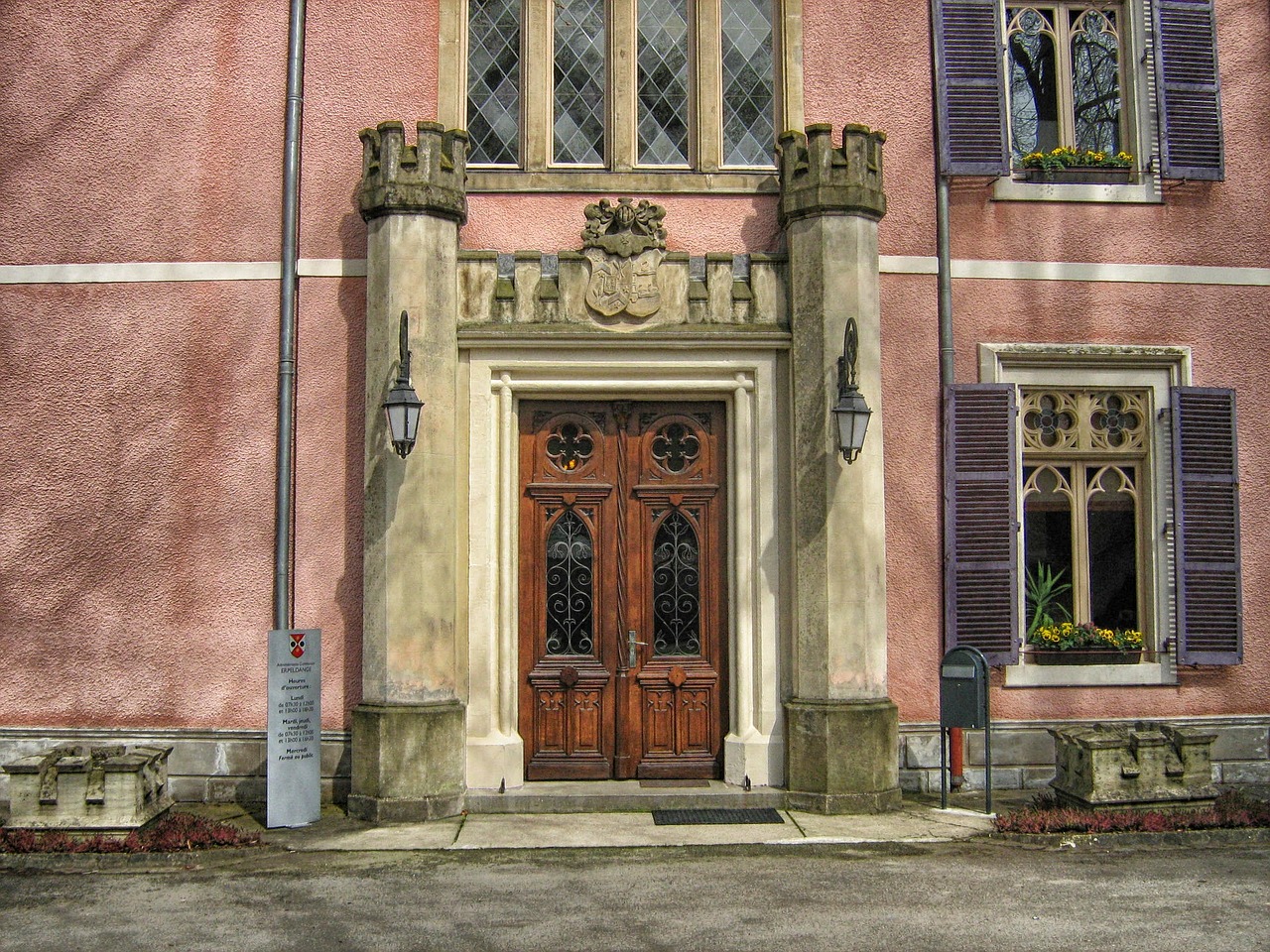Luxembourg Video
Cultural Sensitivities: Understanding Local Norms in Luxembourg
Introduction
When visiting a foreign country like Luxembourg, it is crucial to respect and understand the local cultural norms and sensitivities. By doing so, you not only show respect for the local culture but also enhance your overall experience as a visitor. This article aims to provide a comprehensive guide to cultural sensitivities in Luxembourg, covering various aspects of the country’s customs, traditions, and social etiquette. Whether you’re a tourist or an expatriate, this knowledge will help you navigate the cultural landscape of Luxembourg with ease and respect.
Greetings and Communication
1. Greetings: In Luxembourg, greetings are typically formal and polite. When meeting someone for the first time, a handshake is the most common form of greeting. It is customary to address people using their titles and surnames unless invited to use their first names.
2. Language: Luxembourg has three official languages: Luxembourgish, French, and German. While many Luxembourgers are multilingual, French is widely spoken in business and government settings. It is advisable to learn a few basic phrases in French to show respect for the local language.
3. Punctuality: Being punctual is highly valued in Luxembourg. Arriving on time for meetings, appointments, and social gatherings is considered a sign of respect.
4. Personal Space: Luxembourgers value personal space and tend to maintain a comfortable distance during conversations. It is essential to respect this cultural norm and avoid invading someone’s personal space.
5. Eye Contact: Maintaining eye contact during conversations is seen as a sign of attentiveness and respect. However, it is crucial to strike a balance and not make prolonged or intense eye contact, as it may be perceived as aggressive or intrusive.
6. Small Talk: Engaging in small talk is a common practice in Luxembourg. It is polite to inquire about someone’s well-being, family, and interests before delving into business or other topics of conversation.
Religion and Customs
1. Religious Observances: Luxembourg is a predominantly Roman Catholic country, and religious observances hold significance to many Luxembourgers. Respect religious customs and traditions, and be aware of any religious holidays or events taking place during your visit.
2. Dress Code: Luxembourg has a relatively relaxed dress code, but it is important to dress modestly when visiting religious sites or attending formal events. Revealing clothing may be considered disrespectful in certain settings.
3. Public Displays of Affection: While Luxembourg is generally open-minded, public displays of affection should be kept to a minimum. It is advisable to exercise discretion and avoid excessive physical contact in public, especially in more conservative areas.
4. Table Manners: Luxembourgers appreciate good table manners. It is customary to wait until everyone is served before starting a meal. Keep your hands visible on the table and avoid resting your elbows on it. It is polite to finish everything on your plate as wasting food is considered impolite.
5. Tipping: Tipping is not obligatory in Luxembourg, as service charges are usually included in the bill. However, leaving a small tip as a token of appreciation is common practice.
6. Gift Giving: When invited to someone’s home, it is customary to bring a small gift for the host. Flowers, chocolates, or a bottle of wine are popular choices. Ensure the gift is of good quality and nicely wrapped.
Luxembourg Image 1:

Social Etiquette
1. Respecting Personal Space: Luxembourgers value their personal space and privacy. Avoid intrusive questions or topics that may make someone uncomfortable.
2. Formality: Luxembourg has a relatively formal culture. It is advisable to use appropriate titles and maintain a professional demeanor, especially in business and official settings.
3. Gift Exchanges: Luxembourgers appreciate thoughtful gifts, but extravagant or overly personal gifts may be seen as inappropriate. It is best to choose something practical or related to the recipient’s interests.
4. Respecting Elders: Showing respect to older individuals is highly valued in Luxembourg. Use formal titles and show deference to their opinions and experiences.
5. Queuing: Luxembourgers value orderly queues and waiting in line. It is essential to respect this practice and avoid cutting in line or displaying impatience.
6. Apologies and Thank You: Politeness is essential in Luxembourg. Apologize when necessary and always express gratitude by saying “thank you” and “please.”
Dining Etiquette
1. Table Seating: The host usually determines the seating arrangement. Wait to be shown your seat, and do not change places unless invited to do so.
2. Napkin Usage: Place your napkin on your lap upon sitting down and use it to wipe your mouth as needed. At the end of the meal, leave the napkin loosely folded on the left side of your plate.
3. Utensil Usage: Start using your utensils from the outside and work your way in with each course. Hold the fork in your left hand and the knife in your right hand while cutting food.
4. Toast Etiquette: When toasting, maintain eye contact with the person you are toasting and clink glasses gently. It is customary to say “Santé” (cheers) or “Prost” (cheers in German).
5. Finishing Your Plate: Finish everything on your plate unless you are explicitly offered seconds. Leaving a small amount of food indicates that you are satisfied.
6. Bill Payment: In restaurants, the bill is usually brought to the table. It is common to split the bill evenly among the diners or pay separately.
Public Behavior
1. Public Spaces: Keep public spaces clean and tidy by disposing of trash properly. Luxembourg has a strong commitment to environmental sustainability, so recycling is encouraged.
2. Quietness: Luxembourg is known for its peaceful atmosphere. Avoid loud conversations, music, or any behavior that may disturb others, particularly in residential areas or public transportation.
3. Smoking: Smoking is prohibited in most indoor public places, including restaurants, bars, and public transport. Look for designated smoking areas if you wish to smoke.
4. Photography: Always ask for permission before taking photos of people, especially in more private or intimate settings. Respect any signs indicating restricted photography areas.
5. Queuing: Luxembourgers value orderly queues and waiting in line. It is essential to respect this practice and avoid cutting in line or displaying impatience.
6. Public Transport: When using public transportation, give up your seat to elderly or disabled individuals. Keep noise levels low and avoid playing music without headphones.
Luxembourg Image 2:

Social Customs
1. Gift Giving: When invited to someone’s home, it is customary to bring a small gift for the host. Flowers, chocolates, or a bottle of wine are popular choices. Ensure the gift is of good quality and nicely wrapped.
2. Respecting Elders: Showing respect to older individuals is highly valued in Luxembourg. Use formal titles and show deference to their opinions and experiences.
3. Formality: Luxembourg has a relatively formal culture. It is advisable to use appropriate titles and maintain a professional demeanor, especially in business and official settings.
4. Queueing: Luxembourgers value orderly queues and waiting in line. It is essential to respect this practice and avoid cutting in line or displaying impatience.
5. Apologies and Thank You: Politeness is essential in Luxembourg. Apologize when necessary and always express gratitude by saying “thank you” and “please.”
6. Respecting Personal Space: Luxembourgers value their personal space and privacy. Avoid intrusive questions or topics that may make someone uncomfortable.
Festivals and Celebrations
1. National Day: Luxembourg’s National Day, celebrated on June 23rd, is a significant event. Festivities include a military parade, fireworks, and various cultural activities.
2. Christmas: Christmas is a joyous celebration in Luxembourg. Many towns and cities host Christmas markets, offering traditional food, crafts, and entertainment.
3. Carnival: Luxembourg’s Carnival, known as Fuesend, is a lively celebration with parades, costumes, and street parties. It takes place in February and is a time of merriment and fun.
4. Wine Festivals: Luxembourg is renowned for its winemaking traditions. Wine festivals are held throughout the year, showcasing local wines, music, and culinary delights.
5. Music Festivals: Luxembourg hosts various music festivals, including the International Festival Echternach and the Blues’n Jazz Rallye. These events attract both local and international artists.
6. Easter: Easter is a religious holiday celebrated with church services and family gatherings. It is customary to exchange chocolate eggs and participate in egg decoration activities.
Luxembourg Image 3:

Business Etiquette
1. Formal Dress: Luxembourg has a formal business culture. Dressing in conservative business attire, such as suits and ties for men and formal suits or dresses for women, is expected.
2. Punctuality: Being punctual is highly valued in Luxembourg’s business environment. Arrive on time for meetings and appointments to demonstrate professionalism and respect for others’ time.
3. Business Cards: Exchanging business cards is common practice in Luxembourg. Ensure your business cards are of high quality and include both English and French translations.
4. Meetings: Meetings in Luxembourg are often well-structured and follow a formal agenda. It is essential to arrive prepared, participate actively, and avoid interrupting others while they are speaking.
5. Communication Style: Luxembourg’s business communication style is generally direct and formal. Maintain a professional tone and avoid excessive small talk or informal language.
6. Business Meals: Business meals are common in Luxembourg. Follow proper dining etiquette, such as waiting for the host to start eating, and avoid discussing business matters until after the meal.
Conclusion
By understanding and respecting the cultural sensitivities in Luxembourg, you can ensure a more enriching and positive experience during your visit. Remember to be polite, observe local customs, and show respect for the traditions and values of the Luxembourgers. Embracing the cultural nuances will not only enhance your interactions with locals but also leave a lasting impression as a considerate and culturally sensitive visitor.
References
- Luxembourg National Tourist Office: visitluxembourg.com
- Embassy of Luxembourg: luxembourg.lu
- CIA World Factbook: cia.gov
- Lonely Planet: lonelyplanet.com
- World Travel Guide: worldtravelguide.net


